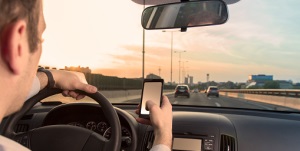
cell phone
Using cell phones often distracts drivers and lead to accidents. With employees - especially those who use employer-owned vehicles such as police officers, firefighters, and public works staff - that risk turns into a major liability. Strong, clear cell phone policies need to be in place to make sure that employees do not endanger themselves and others while driving employer-owned vehicles. These guidelines and best practices will help you formulate your cell phone policy.
|
|
Cell Phone Policies for Employees Who Drive
March 7, 2016
| Nolo
The ability to have a conversation from almost anywhere with almost anyone makes the cell phone a necessity for modern business. But this extraordinary convenience brings with it safety concerns that employers must address through written policies.
|
|
|
Cell Phone Policy
January 27, 2016
| SHRM
This sample policy covers cell phone usage and driving.
|
|
|
Cell Phone Policy Kit
March 7, 2016
| National Safety Council
This kit helps employers reduce crash risk. It has all the materials you need to build leadership support in your organization for a cell phone policy and communicate to employees the crash risks and the need for a policy.
|
|
|
Assess Your Employer Cell Phone Policy
March 7, 2016
| National Safety Council
The Cell Phone Policy Assessment Tool from the National Safety Council reveals how your policy compares to recommended best practices for keeping workers safe.
|
|
|
Driving and Using Cellular Phones
March 7, 2016
| Division of Workers’ Compensation: Texas Department of Insurance
The goal of this training program is to provide information for employers regarding the hazards of using cellular telephones or other similar devices, while driving and to provide information regarding implementing a cellular telephone use policy.
|
|
|
Dos & Don’ts Checklist
March 7, 2016
| Legalzoom
Pages 2 and 3 offer a checklist of dos and don'ts when creating a cell phone policy.
|
|
|
Tips for Distraction-Free Driving
March 7, 2016
| Utah Safety Council
A quick checklist with many items related to cell phone use for drivers before/during their driving.
|
|
|
Cell Phone Use By Law Enforcement Officers
January 27, 2016
| Sarah Gervase, NRA Law Enforcement
Officers need to be smart when using their cell phones. Even if there is no departmental policy in place, treat your cell phones as you would any other piece of equipment you carry on-duty. If you use cell phones, do not be shocked when others scrutinize that use later.
|
|
|
Texting and Driving: Risky Business [Video Blog]
March 7, 2016
| HR 360
According to OSHA, business owners and managers are responsible for safeguarding workers who drive as part of their job, even if they do so only occasionally for work or drive a company vehicle. This means that you, as an employer, must resist the temptation to use technology to stay in constant contact with your employees while they’re behind the wheel.
|